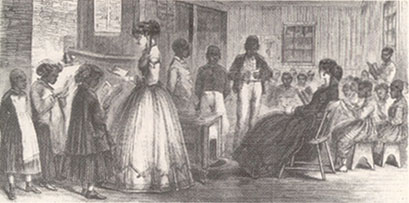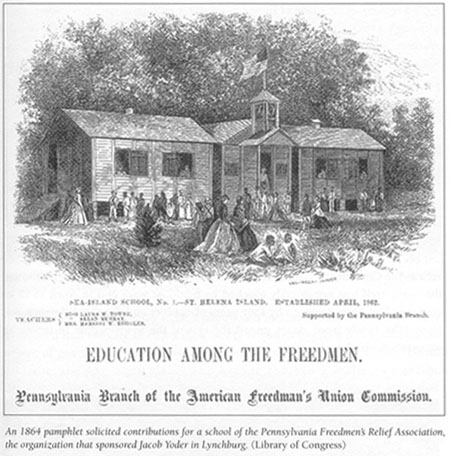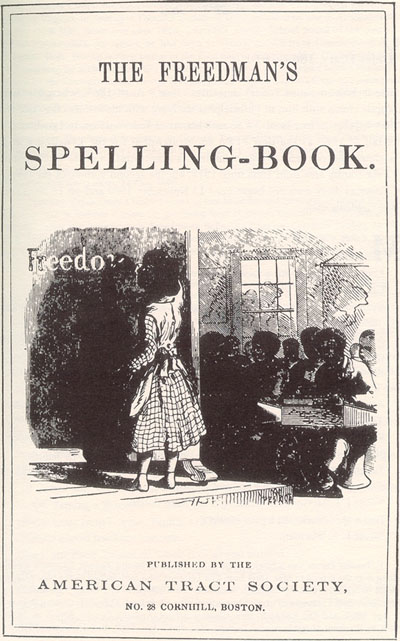

|
When the war ended, the newly emancipated slaves clamored for education.
Not only children, but middle aged and elderly blacks filled schoolhouses,
and, when schoolhouses did not exist, they took their lessons in fields to
learn from a teacher who
often was barely literate, but the most well educated person available.
Under slavery their opportunities to improve their minds were limited and
often barred by law. As soon as they were freed, however, blacks quickly
attempted to set up schools with whatever resources available.
The Freedmen's Bureau was very helpful in establishing these schools. Although in most areas the Bureau was hesitant to offer monetary aid, it did show a willingness in regard to schools. There are many examples of schools being funded by the Bureau. It participated in the construction, furnishing, upkeep of schools and also the purchase of schoolbooks. Regarding education, the Bureau seemed to have more latitude and funds available than in other areas. 
Northern aid societies played an active role as well, and the Bureau facilitated their involvement by corresponding with them and acting as the intermediary for the freedmen. These societies include the American Tract Society and the Freedman's Union Commission. One role they served was finding teachers who were adequately trained. They sent recommendations to the Bureau which in turn consulted with the freedmen about who to hire. These teachers were then "furnished" by the aid societies.  |